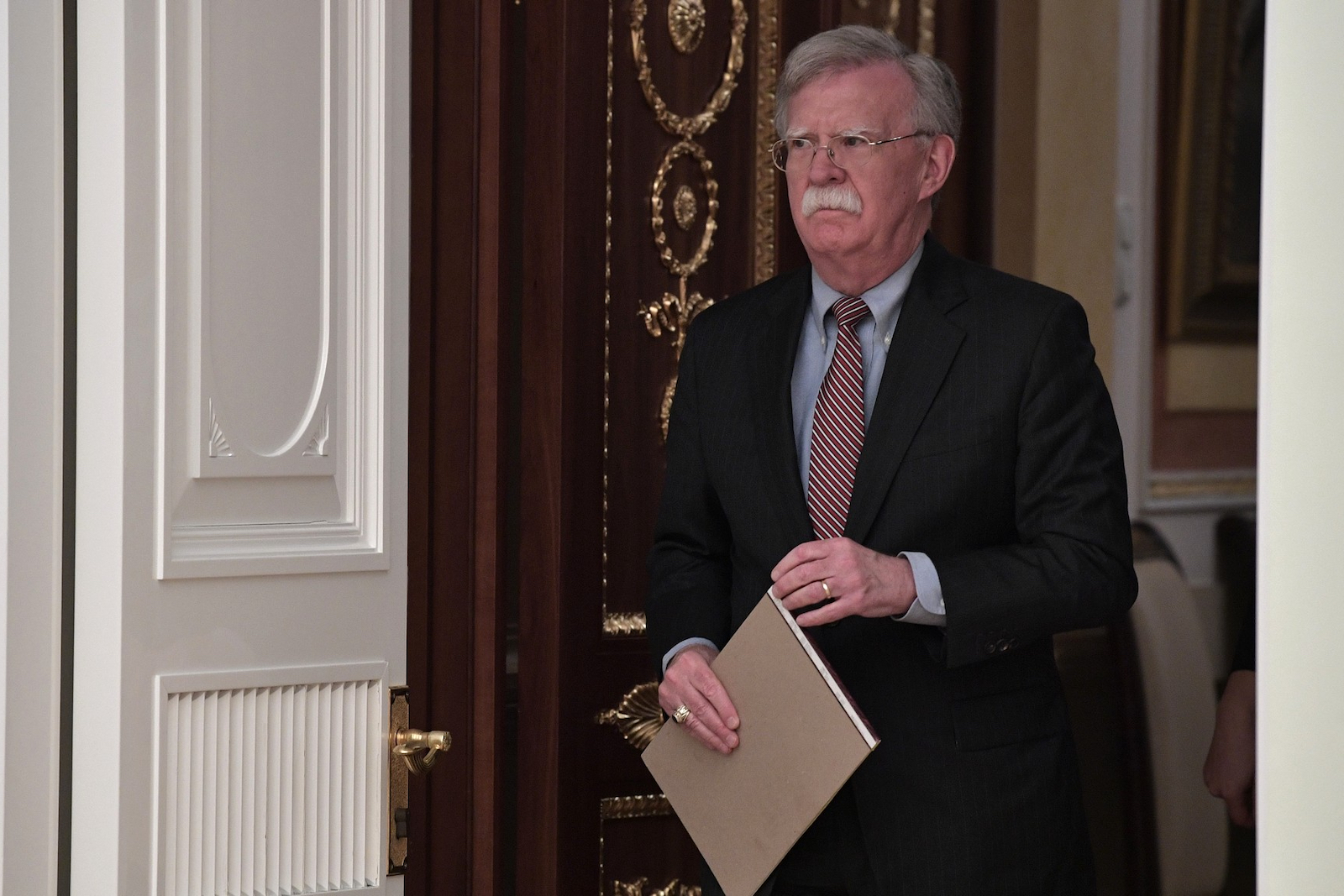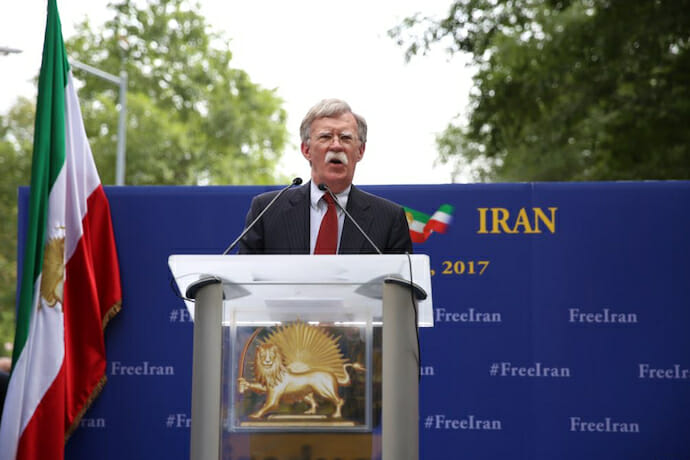
Is Bolton Steering Washington into War with Tehran?
White House National Security Adviser, John Bolton, is back in the saddle after news reports broke the stories that he asked Pentagon officials to develop possible military strikes against Iran following a mortar attack by an Iranian-backed group on a massive diplomatic compound that houses the U.S. embassy in Baghdad in September 2018. Bolton is an Iran hawk who has promoted striking Iran over the years. His ultimate goal is regime change in Iran. He promotes the view that attacking Iran will benefit the U.S. non-proliferation goals, re-install a pro-American regime in Iran, as well as ensure its regional allies about America’s security commitment in the region.
If not by means of a military option, although the U.S. suggests this as a means to deter Iran, Bolton thinks that by mobilizing the Iranian people, the U.S. and its allies might re-install a pro-American regime in Tehran. However, just days before he contacted the Pentagon about military strikes, he lied to the Iranian people by claiming that Washington is not seeking regime change in Iran. “Just to be clear, regime change in Iran is not American policy. But what we want is [a] massive change in the regime’s behavior,” Bolton said at a news conference in Jerusalem in August 2018. In the same month, he gave an interview to Fox News. “We want to put unprecedented pressure on the government of Iran to change its behavior. And so far they have shown no indication they are prepared to do that.”
Bolton seems obsessed with changing Iran’s current political landscape and yet contradicts himself by claiming that Washington is not seeking regime change in Iran. Bolton’s request to strike Iran militarily is not new nor surprising. In 2009, Bolton wrote an op-ed “Time for an Israeli Strike?” for The Washington Post clarifying his views on Iran. “Those who oppose Iran acquiring nuclear weapons are left in the near term with only the option of targeted military force against its weapons facilities. Significantly, the uprising in Iran also makes it more likely that an effective public diplomacy campaign could be waged in the country to explain to Iranians that such an attack is directed against the regime, not against the Iranian people. This was always true, but it has become even more important to make this case emphatically when the gulf between the Islamic revolution of 1979 and the citizens of Iran has never been clearer or wider. Military action against Iran’s nuclear program and the ultimate goal of regime change can be worked together consistently.”

From the Carter to the Trump administrations there have been attempts to sabotage the current regime. An unequivocal answer to regime change in Iran is pursued by these administrations through economic embargoes or military options. Isolating Iran in the Middle East is part of this zero-sum strategy. Now, President Trump and his allies are shifting gears to isolate Iran in an effort to strengthen its ‘maximum pressure’ campaign on Iran. Bolton’s accomplice, Secretary of State, Mike Pompeo’s recent Middle East visit and his Cairo speech are an eye-opener. “It is important to know also that we will not ease our campaign to stop Iran’s malevolent influence and actions against this region and the world. The nations of the Middle East will never enjoy security, achieve economic stability, or advance the dreams of their people if Iran’s revolutionary regime persists on its current course.” The latest in this series is the upcoming Warsaw Summit in February 2019 which also includes cybersecurity, humanitarian aid to Syria and Yemen, and extremism. The world community, however, is divided over Iran.
Bolton is a regular participant of Mujahedin-e-Khalq, an exiled Iranian resistance group. “Cleared policy of the U.S. should be the overthrow of the Mullah’s regime in Tehran. And therefore the only solution is to change the regime itself, and that’s why before 2019 we here will celebrate in Tehran,” he said at the Grand Gathering of Iranians for Free Iran in July 2017. If a military option is not chosen, Bolton believes that his decade’s long relationship with MEK and aiding National Council of Resistance of Iran (NCRI) could help capitalize on Washington’s ability to mobilize the Iranian people. In the event of such a mobilization, he may strike the Iranian nuclear infrastructure in the wake of weak Iranian military strength. Withdrawal from the nuclear agreement and the renewed economic embargo is part of this strategy. “An attack need not destroy all of Iran’s nuclear infrastructure, but by breaking key links in the nuclear-fuel cycle, it could set back its program by three to five years. The United States could do a thorough job of destruction, but Israel alone can do what’s necessary. Such action should be combined with vigorous American support for Iran’s opposition [which Bolton sees in Mujahedin-e-Khalq], aimed at regime change in Tehran,” he said in The New York Times op-ed “To Stop Iran’s Bomb, Bomb Iran” in 2015.
It’s clear in my opinion that Bolton is steering Washington into war with Tehran.

